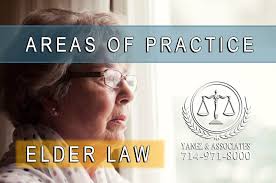Elder Law Medicaid and Navigating Benefits for Seniors
Elder law is a specialized area of legal practice that focuses on issues affecting older adults. As we age, we face unique challenges that require thoughtful planning and guidance. Elder law encompasses various aspects, including estate planning, guardianship, long-term care planning, and Medicaid. Understanding this area of law is crucial for seniors and their families, as it helps ensure that they receive the care and benefits they need while protecting their rights.
The importance of elder law lies in its ability to address the specific needs of older adults. Here are a few key reasons why it matters:
- Legal Protection: Elder law helps safeguard the rights of seniors, preventing abuse and exploitation.
- Financial Security: It assists in managing assets and planning for healthcare costs, ensuring that seniors can maintain their quality of life.
- Access to Benefits: Elder law provides guidance on navigating programs like Medicaid, helping seniors access essential services.
Overview of Medicaid for Seniors

Medicaid is a government program that provides health coverage for individuals with limited income and resources. For seniors, Medicaid can be a vital source of support, especially when it comes to long-term care. Understanding how Medicaid works is essential for seniors who may need assistance with medical expenses.
Medicaid covers various services for seniors, including:
- Inpatient and outpatient hospital care
- Skilled nursing facility care
- Home healthcare services
- Prescription drugs
- Personal care services
It’s important to note that Medicaid is a joint program funded by both federal and state governments, meaning that benefits can vary by state. Seniors should familiarize themselves with their state’s Medicaid program to understand the specific services available to them.
Eligibility Requirements for Medicaid

To qualify for Medicaid, seniors must meet certain eligibility requirements. These criteria can differ from state to state, but they generally focus on financial and functional aspects. Here’s a breakdown of the main eligibility requirements:
Financial Requirements
Seniors must demonstrate that their income and assets fall below specific limits set by the state. The limits typically include:
- Income: Most states have a monthly income limit, often around 138% of the federal poverty level. This figure can vary, so it’s essential to check local guidelines.
- Assets: Seniors are usually allowed to keep certain assets, such as a home and a vehicle, but non-exempt assets must be below a set threshold. In many states, this limit is around $2,000 for an individual.
Functional Requirements
In addition to financial eligibility, seniors may need to demonstrate a need for long-term care. This often involves assessments to determine whether an individual requires assistance with daily living activities, such as:
- Bathing
- Dressing
- Eating
- Mobility
Understanding these requirements is crucial for seniors and their families as they navigate the Medicaid application process. With proper planning and guidance, they can ensure that they meet the necessary criteria to receive the benefits they need.
Types of Medicaid Benefits Available

Medicaid offers a wide range of benefits to support seniors in accessing healthcare services and maintaining their quality of life. Understanding these benefits is crucial for seniors and their families as they plan for medical needs. The types of Medicaid benefits available can vary by state, but here are some common services covered:
- Hospital Services: Medicaid covers inpatient and outpatient hospital care, including emergency room visits and necessary surgeries.
- Long-Term Care: This includes care in skilled nursing facilities (nursing homes) and assisted living facilities, providing essential support for seniors who need help with daily activities.
- Home and Community-Based Services: Seniors can receive care at home or in their community rather than in a facility. This may include personal care assistance, homemaker services, and adult day care programs.
- Prescription Drug Coverage: Medicaid provides access to necessary medications, helping seniors manage their health conditions without excessive costs.
- Preventive Services: Medicaid covers essential preventive care services like immunizations, screenings, and annual wellness visits to help seniors stay healthy.
Understanding the types of Medicaid benefits available can help seniors make informed decisions about their healthcare. Families should review their state’s Medicaid program to discover all the services they can access.
Navigating the Application Process

Applying for Medicaid can feel overwhelming, but understanding the process can make it much easier. Here’s a step-by-step guide to help seniors and their families navigate the application process effectively:
Step 1: Gather Required Documents
Before starting the application, it’s important to collect all necessary documents, which typically include:
- Proof of income (pay stubs, Social Security statements)
- Bank statements and financial records
- Information about any real estate or other assets
- Medical records, if applicable
Step 2: Complete the Application
Seniors can apply for Medicaid online, by mail, or in person at their local Medicaid office. It’s crucial to fill out the application accurately and completely to avoid delays.
Step 3: Submit the Application
After completing the application, submit it along with the gathered documents. Make sure to keep a copy for personal records.
Step 4: Follow Up
After submission, it’s essential to follow up with the Medicaid office to check on the status of the application. They may request additional information or documents, so be prepared to respond promptly.
Understanding these steps can simplify the application process for seniors, ensuring they receive the benefits they need in a timely manner.
Common Challenges in Securing Benefits
While Medicaid can provide essential support for seniors, many face challenges when trying to secure these benefits. Understanding these common obstacles can help seniors and their families prepare and navigate the system more effectively:
Challenge 1: Confusing Eligibility Criteria
Medicaid eligibility can vary significantly by state, leading to confusion about whether seniors qualify. Many families struggle to understand the income and asset limits, which can result in applications being denied.
Challenge 2: Complex Application Process
The Medicaid application process can be lengthy and complicated. Seniors may find it difficult to gather the required documentation or complete the forms accurately, leading to delays or rejections.
Challenge 3: Navigating State-Specific Rules
Each state has its own Medicaid rules and regulations, making it challenging for seniors who move or have family in different states. Understanding the specific rules where they live is crucial.
Challenge 4: Waiting Periods and Delays
After submitting an application, seniors may experience long waiting periods before receiving a decision. This delay can create stress for families who need immediate assistance.
Challenge 5: Appeals Process
If an application is denied, navigating the appeals process can be daunting. Many seniors may not know how to challenge a denial or gather the necessary information to support their case.
By being aware of these challenges, seniors can better prepare themselves for the Medicaid process and seek assistance when needed, ensuring they secure the benefits available to them.
Planning Ahead for Medicaid Benefits
Planning ahead for Medicaid benefits is essential for seniors and their families. Taking the time to understand and prepare for the eligibility requirements can help ensure that individuals receive the support they need when they need it. By starting early, families can make informed decisions that protect assets and secure necessary care.
Here are some key steps for effective planning:
- Understand Eligibility Criteria: Familiarize yourself with the income and asset limits in your state. Knowing these requirements can help you make informed decisions about saving and spending.
- Assess Current Assets: Review your assets and identify which ones are exempt from Medicaid consideration. This may include your primary home or certain personal items.
- Consider Long-Term Care Insurance: This insurance can help cover costs not covered by Medicaid, allowing for more options in long-term care.
- Consult a Professional: Engaging an elder law attorney or a financial planner who specializes in Medicaid can provide valuable guidance tailored to your unique situation.
- Create a Care Plan: Determine the type of care you may need in the future and how you can access that care through Medicaid services.
By planning ahead, families can reduce stress during the application process and ensure that seniors receive the care they need without unnecessary financial burdens.
Resources for Seniors and Their Families
Finding the right resources can significantly ease the journey of navigating Medicaid and elder law issues. Fortunately, there are many organizations and tools available to assist seniors and their families:
- Local Aging Services: Many communities have aging services that provide information on local resources, programs, and support for seniors.
- State Medicaid Office: Your state’s Medicaid office can provide specific information about benefits, eligibility, and the application process.
- Legal Aid Societies: These organizations can offer free or low-cost legal assistance to seniors, helping them understand their rights and navigate the legal system.
- Online Resources: Websites like Medicare.gov and the National Council on Aging offer valuable information about Medicare, Medicaid, and other senior services.
- Support Groups: Joining a support group can provide emotional support and practical advice from others facing similar challenges.
Utilizing these resources can empower seniors and their families to make informed decisions and ensure they are well-prepared for the future.
Frequently Asked Questions
As seniors and their families navigate Medicaid and elder law, they often have common questions. Here are some frequently asked questions to help clarify important topics:
What is Medicaid?
Medicaid is a government program that provides healthcare coverage for individuals with limited income and resources, including seniors who need assistance with medical expenses.
How do I apply for Medicaid?
You can apply for Medicaid online, by mail, or in person at your local Medicaid office. It’s important to gather all necessary documents beforehand to streamline the process.
What are the income limits for Medicaid?
Income limits vary by state, but they are typically set around 138% of the federal poverty level. Check with your state’s Medicaid office for specific limits.
Can I keep my home if I qualify for Medicaid?
Yes, in most cases, your primary home is exempt from Medicaid asset calculations, allowing you to maintain ownership even if you qualify for benefits.
What should I do if my Medicaid application is denied?
If your application is denied, you have the right to appeal the decision. Review the denial notice for specific reasons and gather additional documentation to support your case.
These FAQs aim to provide clarity and support as seniors and their families navigate the complexities of Medicaid and elder law.
Conclusion and Final Thoughts
Navigating the world of elder law and Medicaid can seem daunting, but with the right information and resources, seniors and their families can make informed decisions that ensure access to essential benefits. Understanding the types of Medicaid services available, preparing for eligibility, and utilizing available resources are crucial steps in this journey. By planning ahead and staying informed, families can avoid common pitfalls and secure the necessary support for their loved ones. Remember, seeking help from professionals such as elder law attorneys and financial planners can make a significant difference in understanding complex regulations and optimizing benefits. Ultimately, the goal is to ensure that seniors receive the care they need while protecting their assets and enhancing their quality of life.


